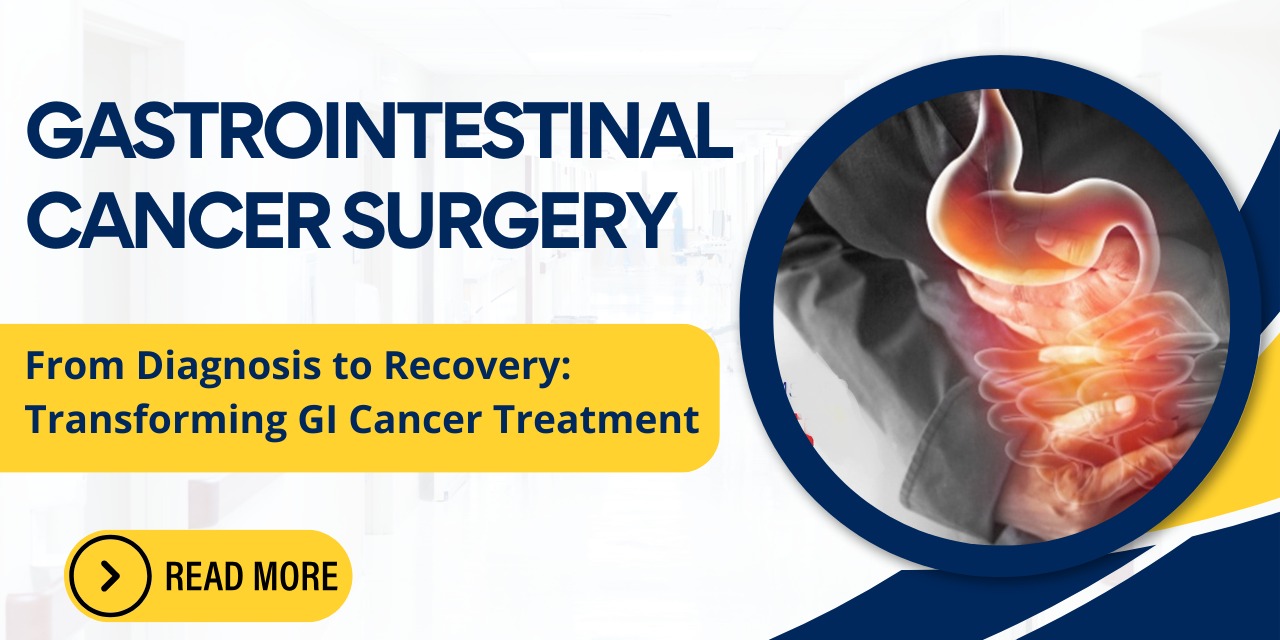Gastrointestinal (GI) cancers encompass a group of malignancies affecting the digestive system, including the esophagus, stomach, pancreas, liver, colon, and rectum. These cancers present significant challenges due to their often advanced stage at diagnosis and complex treatment requirements. However, advancements in surgical techniques, coupled with innovations in oncology and patient care, have reshaped the landscape of GI cancer treatment, offering new hope and improved outcomes for patients.
Early Detection and Diagnosis
Early detection plays a pivotal role in the successful treatment of GI cancers. Screening programs, such as colonoscopies for colorectal cancer and endoscopic ultrasounds for pancreatic cancer, aim to identify abnormalities in the digestive tract before symptoms manifest. Advances in imaging technology, including computed tomography (CT), magnetic resonance imaging (MRI), and positron emission tomography (PET), enable oncologists to precisely locate tumors and assess their size and spread.
Tailored Treatment Approaches
Once diagnosed, treatment plans are tailored to each patient’s specific cancer type, stage, and overall health. Surgery remains a cornerstone of treatment for many GI cancers, offering a curative option for localized disease and palliative relief for advanced cases. The goals of surgery vary—from removing tumors and affected tissues to restoring digestive function and improving quality of life.
In recent years, minimally invasive surgery (MIS) has revolutionized GI cancer treatment. Techniques such as laparoscopy and robotic-assisted surgery allow surgeons to perform complex procedures through small incisions with enhanced precision and reduced trauma to surrounding tissues. This approach minimizes post-operative pain, shortens hospital stays, and accelerates recovery compared to traditional open surgeries.
Advancements in Surgical Techniques
Advancements in surgical techniques continue to expand treatment options for GI cancers. For instance, liver resection for metastatic colorectal cancer has become more refined, with better outcomes due to improved surgical instruments and perioperative care protocols. Similarly, techniques like the Whipple procedure for pancreatic cancer and sphincter-preserving surgery for rectal cancer aim to maximize cancer removal while preserving organ function and maintaining quality of life.
Enhanced Recovery Programs
Enhanced Recovery After Surgery (ERAS) programs are transforming post-operative care for GI cancer patients. These multidisciplinary protocols integrate evidence-based practices before, during, and after surgery to optimize recovery outcomes. Components of ERAS programs include pre-operative nutrition optimization, minimization of bowel preparation, judicious fluid management during surgery, early mobilization, and effective pain management strategies. By reducing surgical stress and complications, ERAS programs facilitate quicker recovery, shorter hospital stays, and improved patient satisfaction.
The Role of Multidisciplinary Care
The management of GI cancers often involves a multidisciplinary team of specialists, including surgeons, medical oncologists, radiation oncologists, gastroenterologists, radiologists, pathologists, and oncology nurses. Collaborative decision-making ensures comprehensive treatment planning and personalized care for each patient. This team-based approach also supports ongoing monitoring, survivorship care, and rehabilitation to optimize long-term outcomes and quality of life.
Future Directions in GI Cancer Surgery
Looking ahead, ongoing research and innovation hold promise for further improving outcomes in GI cancer surgery. Advances in robotic technology, artificial intelligence (AI), and augmented reality (AR) are enhancing surgical precision and expanding the boundaries of what is surgically feasible. Novel approaches such as organ preservation surgery, minimally invasive techniques for liver and pancreatic cancers, and innovative reconstruction methods are being explored to minimize surgical impact and improve functional outcomes.
Conclusion
Advancements in surgical techniques, precision medicine, enhanced recovery programs, and multidisciplinary care, led by dedicated doctors and specialists, are transforming GI cancer treatment. These innovations enhance patient outcomes by tailoring treatments, minimizing risks, and supporting faster recovery in Gastrointestinal Cancer Surgery in Jalandhar, setting a new standard in comprehensive cancer care.For personalized care and expert guidance on your gastrointestinal treatment journey, reach out to us at Premier Gastroenterology Institute(PGI) jalandhar or call at +91-8146622802.

